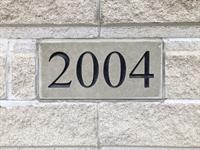Present perfect continuous expresses an action that recently stopped or is still going on. It puts emphasis on the duration or course of the action.
Use
| Actions beginning in the past and still continuing (focus is on the action) – mostly with 'since' (a point of time) or 'for' (a period of time): | I have been waiting for her for five hours |
| Recently completed actions: | He has been watching too many videos. |
Present perfect continuous has the meaning of 'lately'. If you use the present perfect continuous in a question such as 'Have you been feeling alright?', it can suggest that the person looks sick or unhealthy. It is possible to insult someone by using this tense incorrectly.
Form: have/has + been + infinitive + -ing
| Affirmative | Negative | Questions | |
| I, you, we, they | have been running. | have not been running. | Have you been running? |
| He, she, it | has been running. | has not been running. | Has it been running? |
Formation of the present participle (often called the -ing or continuous form)
| adding -ing to the bare infinitive: | work – working | |
Consonant after a short, stressed vowel at the end of the word If the consonant is not stressed | double the consonant: do not double it: | sit – sitting benefit – benefiting |
| In British English | double one -l at the end of the word: | travel – travelling |
One -e at the end of the word Double -e | leave out the -e: add -ing: | write – writing see – seeing |
| Verbs ending in -ie | change 'ie' to 'y': | lie – lying |
| Verbs ending in -c | change 'c' to 'ck': | picnic – picnicking |
| If the starting point is given,we use | 'since' | I have been a teacher since 2004. |  |
| If the period of time is given,we use | 'for' | I have been a teacher for ten years. |  |
Signal words: 'all day', 'the whole day', 'since', 'for'.
Questions with: 'how long'.